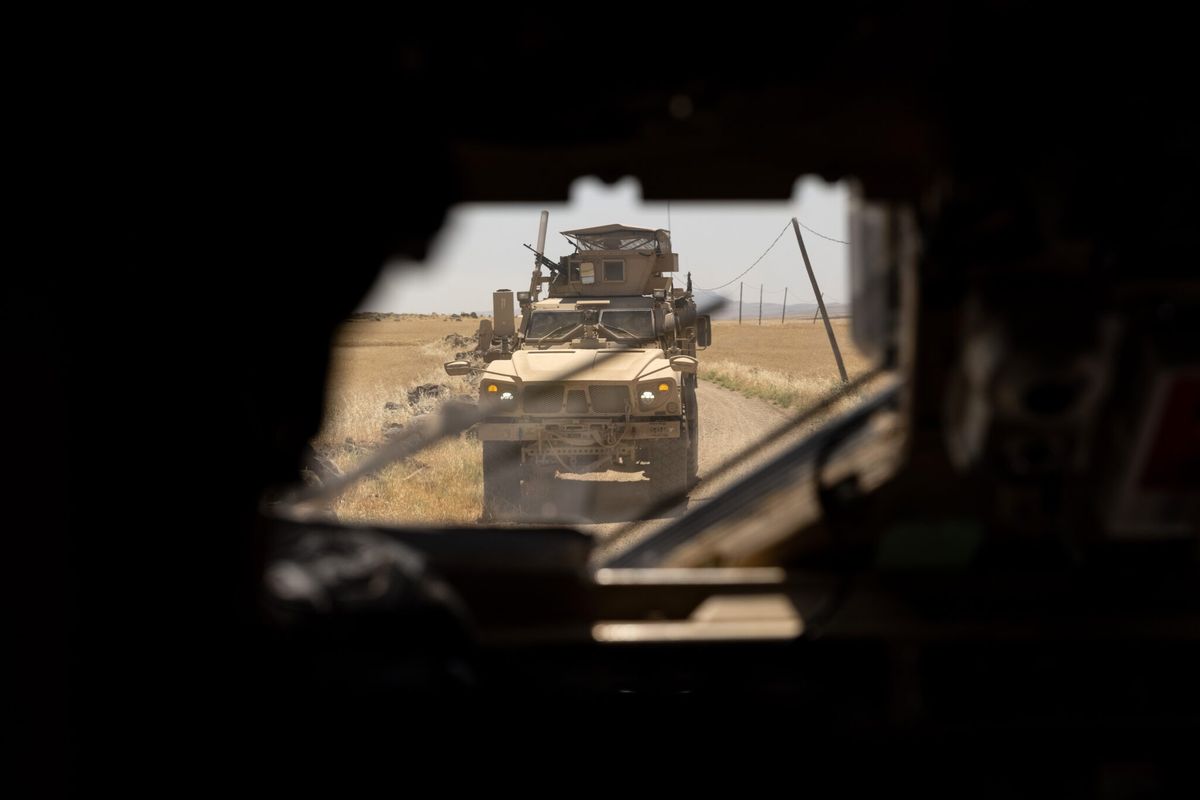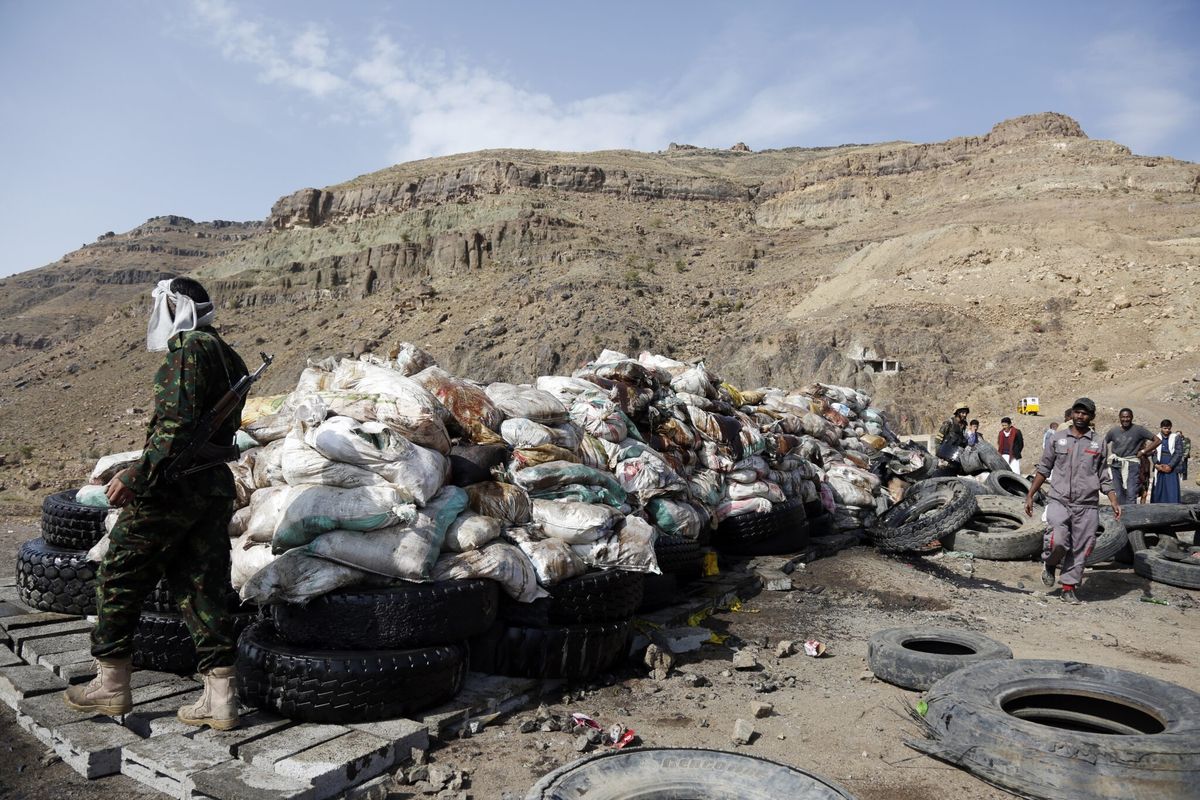The American strikes last week on Syrian chemical production, storage and delivery facilities amounted to no more than another pinprick and a slap on Syrian leader Bashar Assad’s wrist and were devoid of any long-term strategy. It was a “one-shot” strike to punish the "Butcher of Damascus" for a one-time heinous act, which the regime has withstood. Despite Trump's "Mission Accomplished" bravado, Assad was more belligerent the morning after the strikes than ever.
That is partly why I continue to argue that deposing the Assad regime as punishment for its continued brutality against the Syrian people is the only logical course of action – something I argued last week in The Cipher Brief – a position I believe has been bolstered by Assad’s nonchalant reaction to the U.S., UK and French strikes.
The key lesson that the Assad regime and the neighboring countries have taken from the American-British-French strikes is that although the United States and its Western allies do not tolerate the killing of innocent people by poison gas, they seem to take a benign attitude toward the killing of thousands of Syrians by air strikes, barrels bombs, shelling by tanks and long-range guns. Syrians are being killed by their bloody regime regardless of whether the crimes are being done by conventional weapons or poisonous gas.
The Russians and Iranians viewed the strike as a symbolic gesture by Trump to assuage his conscience after watching the horrific pictures of Syrian children suffocating from the gas attack and to show the country that he kept his word. In reality, and based on media reports from the region, his and America’s prestige in the Arab world is now lower than it was before the strike.
That follows a familiar pattern: coalition strikes and sanctions in the past half-decade have failed to dislodge the regime or to force it into meaningful negotiations with the opposition. The massive military and economic support Assad has been receiving from Russia and Iran has kept it afloat and more defiant.
Dealing with Assad is not rocket science: unless he is deposed, no meaningful negotiations about the future of Syria will ever take place, and the country will not get any better. President Barack Obama should have acted back in 2012 when he declared that Assad "should step aside." Unfortunately for the Syria people, he didn't—and that's why we are where are today. The process of removing Assad from power must involve a future strategy for the country and a serious commitment in treasure and personnel to make it happen. Otherwise, forget about it—don’t make presidential pronouncements and don’t engage in symbolic military action. It is not fair to raise the expectations of the Syrian people in anticipation of a military retaliation and to have them dashed so cynically and cruelly.
Regime change in Syria could be achieved through a peaceful process if the major actors are seriously interested in charting a future course for a post-Assad and a post-ISIS Syria. The United States and its European allies could engage Moscow and Teheran in clandestine discussions, perhaps through a country like Oman, about the future of Syria. The Trump administration could use its substantial leverage with Russia and Iran to get them to the table, including the lifting of sanctions against Russia and re-certifying the Iran nuclear deal.
The process could initially include having Assad stay in control for a specified period of time as a transitional government before fair and free elections take place. However, Assad will not be allowed to play any role in the "new" Syria. If Russia and Iran are promised by Washington and its European allies that they could normalize their relations with the international community with minimal or no sanctions, they would be willing to end their support of Assad.
Before embarking on such a delicate initiative, Trump must first sell the plan, also secretly, to the House and Senate leaders. Such a plan in the long-term will serve American national security and regional interests. Washington's secret talks with North Korea could be a template for similar talks with Russia and Iran about the future of Syria. Although the probability of such a plan succeeding appears low, it could be achievable if the United States and its European allies, especially the UK and France, are serious about settling the horrendous conflict in Syria.
Much of the opposition to deposing Assad is perhaps colored by the negative experience we have had in recent decades with the concept of "regime change." I and many others opposed "regime change" in Iraq on the eve of the Iraq war in winter 2002 to spring 2003 because Iraq was a functioning state, albeit under the thumb of a dictator. Removing Saddam, as the Bush administration and its neocon supporters advocated, without knowing the dynamics of Iraqi society and the balance that was maintained between Sunnis, Shia, and Kurds was going to lead to disaster—which in fact happened.
Nor did the Bush administration have a strategy for the future of Iraq beyond Saddam. In briefing senior policymakers at the White House at the time, I argued that a) Iraqis' dislike for Saddam didn't mean they liked foreign occupation, and b) the “liberation” of Iraq would quickly morph into "occupation." This too came to pass.
Syria today is in a totally different situation than Iraq in 2003. Chaos, instability, and a lack of central authority pervade the county. Assad would have been defeated by his own people at least half a decade ago if it weren't for Russian and Iranian massive support and the inaction on the part of the Obama administration. The Trump administration is maintaining the same flawed policy toward Syria and Assad.
Time after time, Assad has shown beyond a shadow of a doubt that he wasn't interested in negotiating a settlement or a transitional regime that would set Syria on different trajectory other than the Alawite brutality or the ISIS barbarism. Assad has never been willing to imagine a Syrian future that precluded his dictatorial regime.
Ultimately, removing Assad requires that the regional and foreign actors involved in the process—including the United States, its European allies, Turkey, and some Arab states—must have a plan for the future of Syria, including some sort of a Marshall-type economic development plan. We should have learned the lesson from Charlie Wilson's Wars that defeating a perceived nasty regime in Afghanistan without a plan for the "morning after" will end up in utter failure. Afghanistan and Iraq are but two illustrative examples. If Washington can't do that in Syria, it should not embark on any military action against the Assad regime. Nor should the American president establish so-called red lines if he is unable or unwilling to enforce them.
Editor's Note: This story was updated on 19 April 2018 with additional thoughts from the author on how regime-change could be accomplished.













